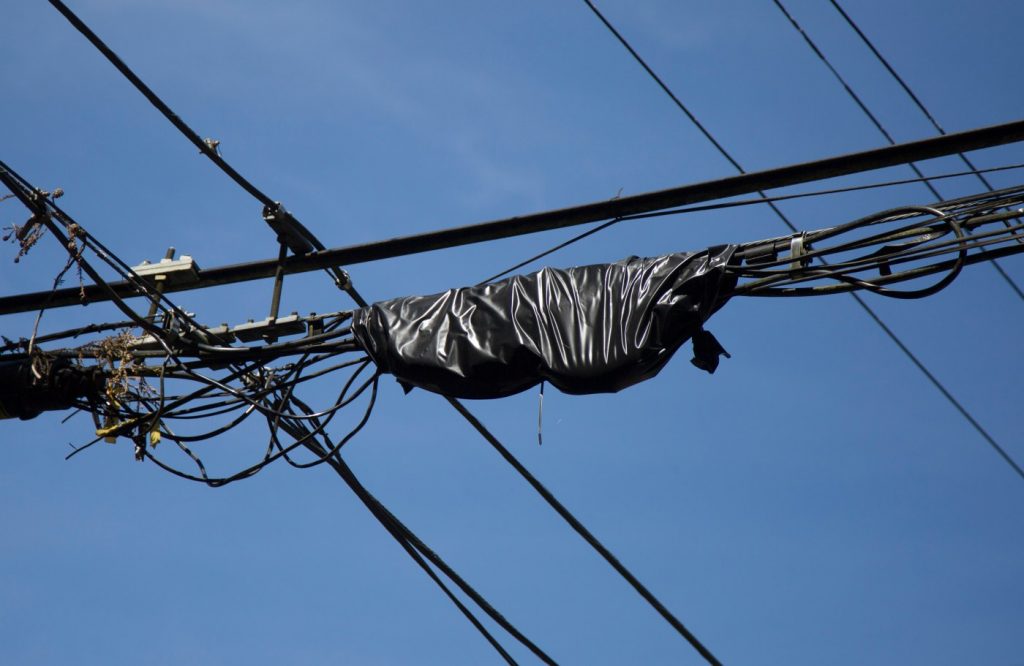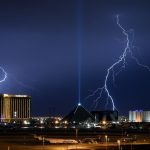A proposal by telecommunications giant AT&T to withdraw landline service from most of the Bay Area has sparked widespread fear among residents, many of whom live where cell service is spotty, power outages are frequent and losing connectivity is “very scary.”
Oakland senior Carla Vinciguerra lives in a three-story home with a landline on each floor. If she suffered a medical emergency, and her cell phone were on a different floor, she could possibly crawl to a landline, she said, but without that option, she would have no way to summon help.
“I just had to call the ambulance last September because I couldn’t stand up,” Vinciguerra said. “I ended up in emergency and then in the hospital.”
Vinciguerra is among more than 2,000 people who have submitted comments to the California Public Utilities Commission, which will have the final say, over AT&T’s proposal to stop operating landlines in the Bay Area and much of the state, leaving only cell phone and internet-based voice-communication services that it and other companies provide.
Thanks to its earlier monopoly status and state law requiring voice communications for all who want them, AT&T is for large areas of California the “carrier of last resort” — the utility required to provide phone service to anyone wanting it in its service area. In its proposal to the utilities commission to escape that obligation, the company said it is seeking to stop landline service only in areas “where there is a demonstrated voice alternative.”
Nearly all those commenting said they opposed the plan, citing a host of concerns, from medical crises to loss of communications during earthquakes, fires, floods and storms because cell phone infrastructure is damaged or power outages cut off internet service.
“The consequences are life threatening,” said Regina Costa, telecommunications policy director for consumer group The Utility Reform Network. Hundreds of thousands of households in the Bay Area and millions around California would lose landline service if the commission approves AT&T’s proposal, Costa estimated. AT&T declined to say how many households in the Bay Area or California would be affected.
Many of the comments to the commission came from those in rural areas, where cell and internet service may be spotty or non-existent, power outages are increasingly common from PG&E fire-prevention shutdowns, wildfires are increasingly large and frequent, storm damage can be catastrophic, and help is often far away.
AT&T said in a statement that fewer than 7% of households in its territory use traditional landlines, “and a great number of those households also have alternatives available where they live.”
In its proposal to the utilities commission, AT&T said its landline services were “fast becoming a historical curiosity” and serve no “valid public purpose.” Making the company keep offering the services gives its competitors an advantage, AT&T said.
“Investors prefer firms that can devote their resources to the best new technology, not ones that have to spend wastefully on a technology for which demand has largely died,” AT&T, valued at $126 billion in the stock market, said in the proposal.
AT&T described landline service as duplicative to its wireless and fiber-based internet offerings that the company says it could expand faster if it did not have to expend money and resources to support landlines.
“When fires, earthquakes, floods or other disasters strike, Californians rely on mobile phones and (internet) networks to access critical information, family and first responders,” AT&T’s statement said.
But the claim that cell phones, internet and “VoIP” internet-phone service can safely replace landlines throughout AT&T’s service area is “definitely not true,” said California Assembly Member Gail Pellerin, a Democrat representing parts of San Jose and the South Bay, Los Gatos and areas of the Santa Cruz Mountains.
In a Feb. 1 letter to the utilities commission, Pellerin wrote that recent devastating natural disasters including landslides and the 2020 CZU fires in the Santa Cruz Mountains “have repeatedly underscored the indispensable role of landline services.
“During such crises, when power outages are prevalent and cellular and VoIP services are unreliable, landlines have remained the sole means of communication for emergency services, medical consultations, and disaster-management efforts.”
Outside her home between Scotts Valley and Santa Cruz on Wednesday, Jennie Dusheck was watching crews saw up and haul away a massive madrone tree that Sunday’s violent windstorm felled across her driveway. The tree blocked her from driving away from her home in a high-fire-risk neighborhood without cell service where internet is unreliable, power outages are frequent and mudslides sometimes occur.
AT&T’s proposal, said freelance science writer Dusheck, 69, is “very scary.”
Former City of San Jose worker Jaime Saldivar, 70, said his landline has served as his most reliable communications tool, unlike cell and internet service. “Power lines go down, this goes down, that goes down,” Saldivar said. If someone in his multi-generational home had a health emergency when cell service and internet were out and he no longer had his landline, “it could be critical,” he said.
Pellerin worries about such situations on a broader scale. “I’d hate to learn that we made a mistake,” she said, “by getting in a situation that we’re in an emergency and we lose people’s lives that could’ve been avoided by keeping a connection for them to call in for emergency services.”
The utilities commission said it could approve or deny AT&T’s proposal as soon as this fall. Under the company’s proposal, it could begin withdrawing landline service six months after approval. In-person public hearings on the proposal are scheduled for this month and next in Ukiah and Indio. Two virtual hearings are set for March 19, via webcast at adminmonitor.com/ca/cpuc and phone at 1-800-857-1917, passcode 6032788#.


